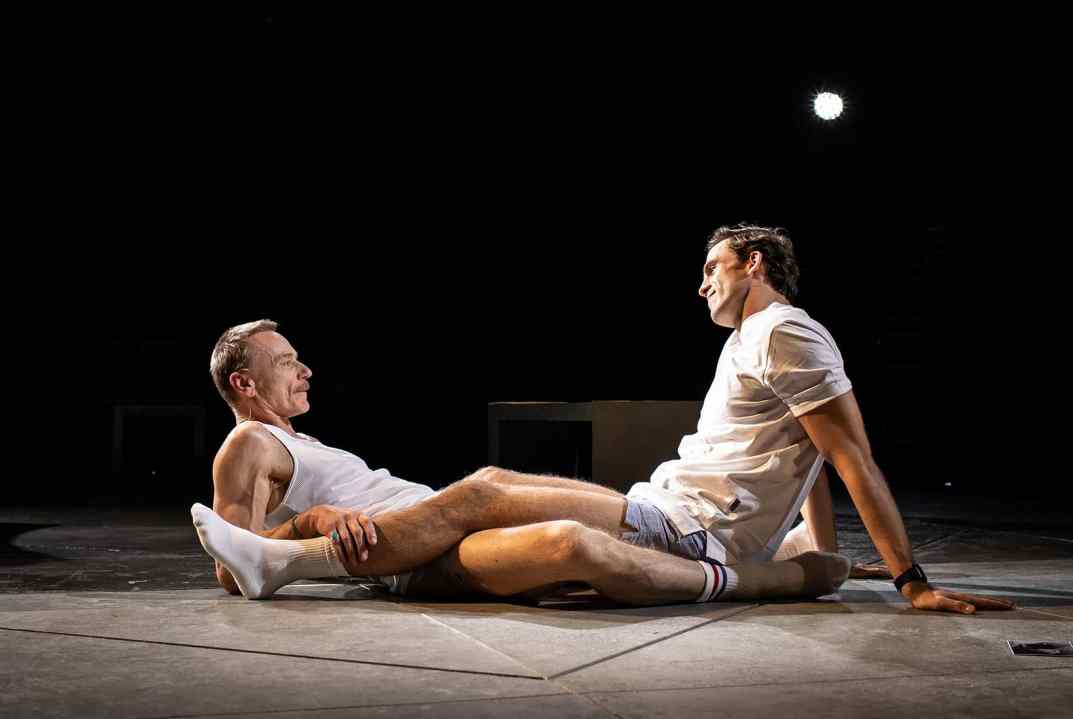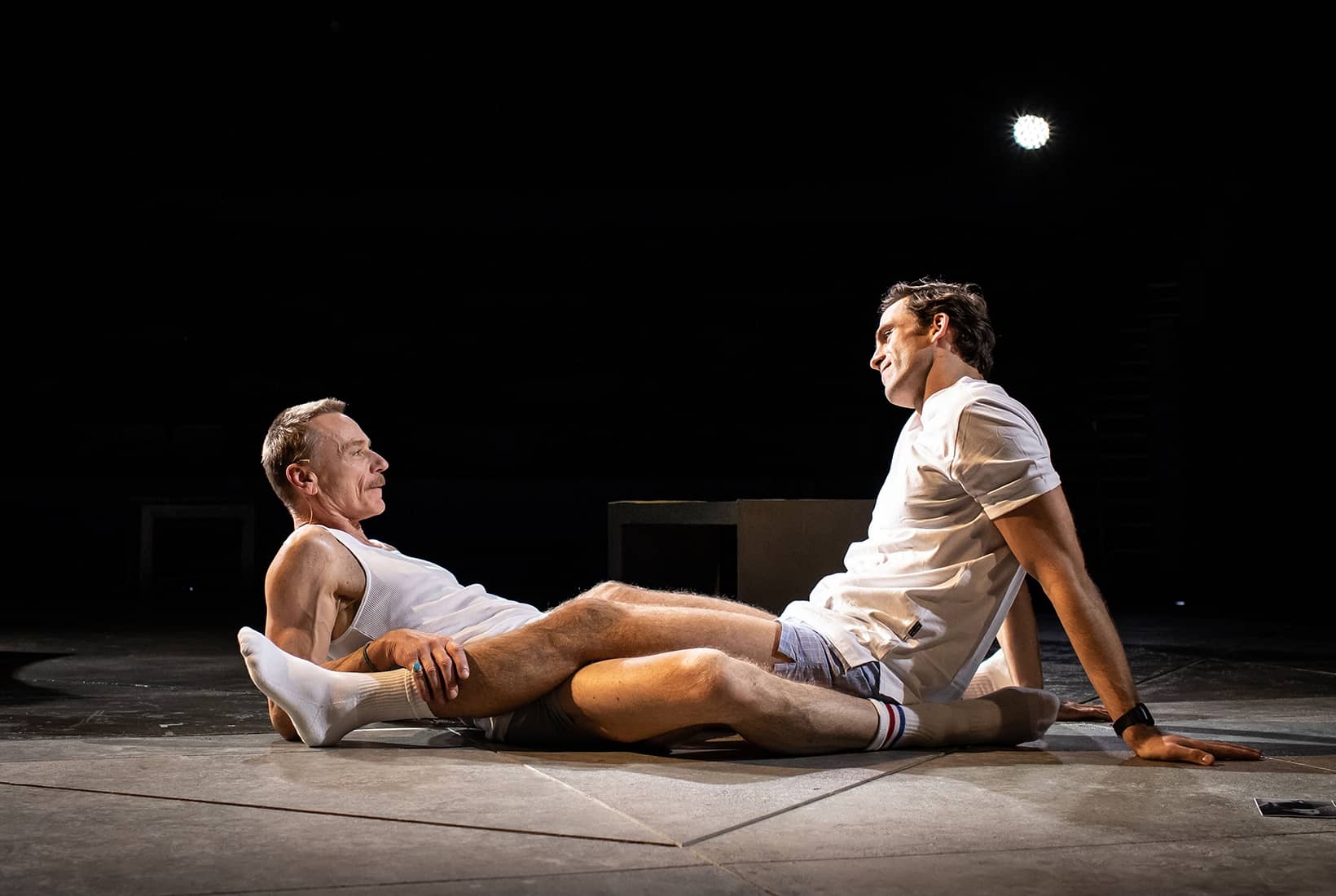The Normal Heart is not about Aids. Larry Kramer’s play is set in New York in 1981 at a time when clinicians were struggling to find a link between a handful of rare diseases that struck only gay men and heroin addicts. The term ‘Aids’ wasn’t adopted until late in 1982. And this dampens the wheels of Dominic Cooke’s production. A playgoer is likely to stifle a yawn as the characters on stage try to discover medical facts that have been common knowledge for decades.
There are other problems with Kramer’s ageing script. The story follows an indignant activist, Ned, who has to persuade the city authorities to take the plague seriously. He embarks on a laborious campaign whose numerous battlegrounds the script exhaustively covers. The dialogue is often bloated and flaccid. Too many scenes involve garrulous characters striding around and rabbiting about the latest plot developments. When Kramer wants to change the direction of a scene he throws in a sudden interjection. ‘Guys? It’s late and we haven’t chosen a president yet.’ A character walks in and announces how much cash he made at a charity gala last week, and he then compares this tally with the sums received at previous similar events. It’s less a drama and more an Official History commissioned by a dull but well-meaning grandee. Vicki Mortimer’s design is effective and she sets the action beneath a circle of blinding light. High overhead, a flame burns constantly. It feels like an act of remembrance as well as a history lesson.
It’s less a drama and more an Official History commissioned by a dull but well-meaning grandee
Eventually, deep into the final act, Ned’s colleagues notice something about him that the audience will have spotted earlier. Ned is an idiot. He won’t shut up. He keeps sabotaging his own efforts with tantrums and outbursts that alienate the people he needs to win over. His colleagues decide to drop him from the campaign. In the 1980s this play needed to be staged urgently because homosexuality back then was seen as a form of aberration. Hence the title, The Normal Heart. Today, the immediacy has died. And the three-hour length is hard to justify. Shakespeare is rarely staged without cuts. Why not this?
Curious by Jasmine Lee-Jones is a dramatised diary with three unrelated narrative strands. Jaz is a black drama student forced to play Servant Two in a Restoration comedy while a white actress takes the lead role. When Jaz complains, she receives an official reprimand for making a fuss about her ethnicity. Stung, she sets out on two parallel odysseys. She visits Croydon’s hectic party scene and experiences a grubby sexual fumble with a creepy archivist. Meanwhile, by day, she investigates the history of a black actress who played leading Shakespearean roles, including Juliet and Othello, on the London stage in the 18th century.
This is a fascinating story but it’s told without energy or imagination. Jaz trudges lamely from library to library, reading out fragments from the actress’s story. What a bore. It’s like listening to a radio documentary. The show’s best bits are the early sketches mocking the pretentious banality of drama schools. (The press-night crowd, crammed with student thespians, adored this material but really it belongs in a college revue.) Lee-Jones pursues the tale of the black 18th-century actress but she lets herself down at the end by delivering an inexcusably cheap twist that wouldn’t be allowed on a children’s TV show. Soho Theatre should ensure that its scripts observe professional standards or it risks losing its reputation as a serious playhouse.
Does anyone need a musical based on Back to the Future? No. But here it is anyway. The shows sticks closely to the 1985 movie about a teenage boy stranded in the 1950s by a malfunctioning time machine. The songs are fine, though perhaps not hugely memorable. That doesn’t matter. The storyline is a thing of exquisite and ingenious beauty. Olly Dobson (Marty) has been asked to replicate Michael J. Fox’s film performance exactly. Which he does. He’s so good it’s almost criminal. Did no one ask poor Dobson if he cared to add a dash of his own original flavourings to the role? Roger Bart plays Doc Brown as a dishevelled but twinkly-eyed lunatic, midway between a dosser and a Nobel Prize laureate. There’s great work from Cedric Neal as a cleaner who dreams of becoming mayor. Hugh Coles is outstanding as Marty’s bullied father, and he performs a little dance of agonised squirming each time his tormentor humiliates him. At the end Coles comes back having been transformed into a millionaire author. He’s as convincing playing an alpha male as he was in the role of a frightened whipping boy. Amazing work.
The show’s greatest feat is the lighting design that envelopes the entire auditorium. It’s nothing more than smoke and mirrors, really. A case of flash, bang, wallop. But it delivers a hell of a kick.








Comments